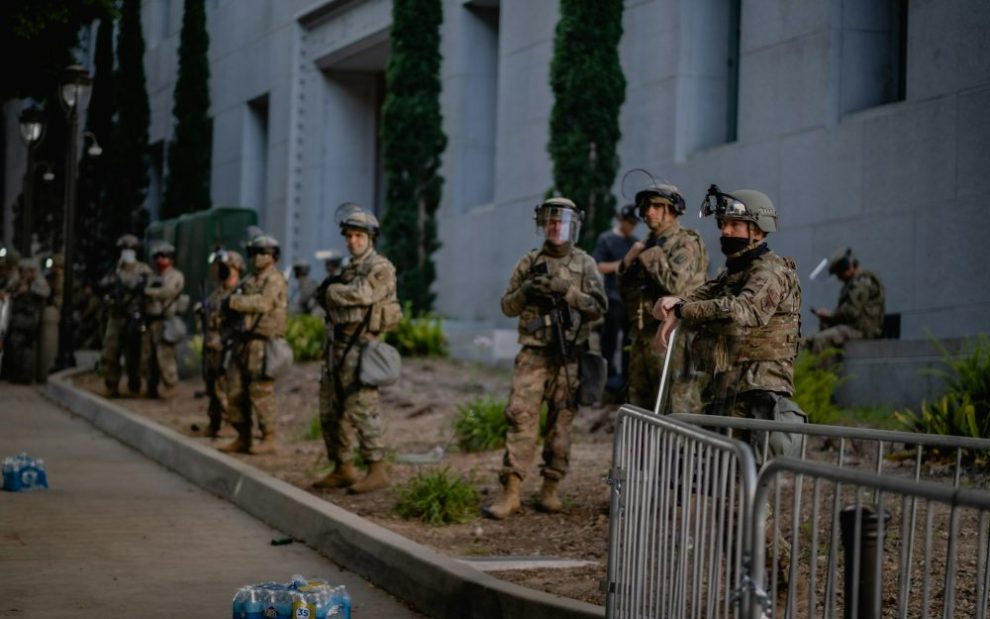Former presidents Joe Biden and Barack Obama were hardly slouches when it came to deporting people who had entered the United States without documentation, particularly the minority among them who committed crimes after crossing the border. During their White House years, the two Democrats were responsible for the removal of millions of people.
President Donald Trump seems intent on outdoing his predecessors whether it makes any civic or moral sense to do so, and even if it violates constitutional law. According to some estimates, each deportation produces hard costs of about $20,000; other costs—the impact on families and communities left behind and on the U.S. economy overall—are harder to calculate but altogether the Cato Institute believes it may cost the nation as much as $1.4 trillion over the next decade.
The president campaigned on a promise to deport every person in the United States without documentation—some 10 to 12 million people—and seems intent on following through on this ghastly commitment. Immigration and Customs Enforcement officials have ratcheted up their efforts, responding to a demand from the virulently anti-immigrant White House deputy chief of staff, Stephen Miller, for 3,000 deportations a day.
With legal avenues of immigration largely cut off, overstaying visas and entering the United States without proper documentation have become rites of passage for millions. The presence of these millions and their often-native-born children is a human manifestation of the nation’s stark failure to address an immigration system that has been dysfunctional for decades.
Because of the scale of the disorder that a vast deportation effort would produce, recent presidential administrations focused on tracking down and removing criminal offenders among immigrant communities. But the White House has cast that precedent aside, overturning temporary protected status for hundreds of thousands of immigrants and seizing undocumented people at court houses where they had been attempting to formalize their residency. Many of the detained and deported have been residents for years in the United States, working and paying taxes, budgeting for rents and mortgages, and raising families without incident.
Enforcement actions at construction sites, farms, and restaurants are provoking dangerous confrontations with community members and the friends, families, and neighbors of undocumented people. The raids themselves appear sloppy and over militarized. They have been provoking reactions that have accelerated in ferocity, culminating in large-scale civic disturbances in June after worksite raids in Los Angeles.
That disorder led to calls for the president to declare an emergency under the Insurrection Act and deploy the military on U.S. streets, a breach in the nation’s democratic order that will be difficult to recover from. Does any of this make practical, moral, or fiscal sense? Or is it all part of a performance meant for an audience and an ego of one?
Buried in the administration’s One Big Beautiful Bill are budget items that herald even worse ahead. The Triple-B requests an additional $25 billion for immigration enforcement and $45 billion more for detention. It provides an additional $100 million to expedite the removal of unaccompanied children, obliterating current legal protections for these children.
In a letter to Congress on May 20, U.S. bishops warned that families “would be left to languish in costly and harmful detention facilities” and that enforcement efforts “would be expanded well beyond those who committed crimes to include people who have peacefully contributed to American communities for years, even decades.”
Folks who have worried about fascism coming to America have been dismissed in the past, and it is hard to say when that line would be definitively breached. But if the president is true to his word, then a knock at the door is indeed coming for millions of people living in the United States, people that a lot of us consider family and friends, employees and coworkers, members of our communities and our parishes.
Which side will you be on when that knock at the door comes for your neighbor?
This article also appears in the August 2025 issue of U.S. Catholic (Vol. 90, No. 8, page 42). Click here to subscribe to the magazine.
Image: Unsplash/Levi Meir Clancy
















Add comment